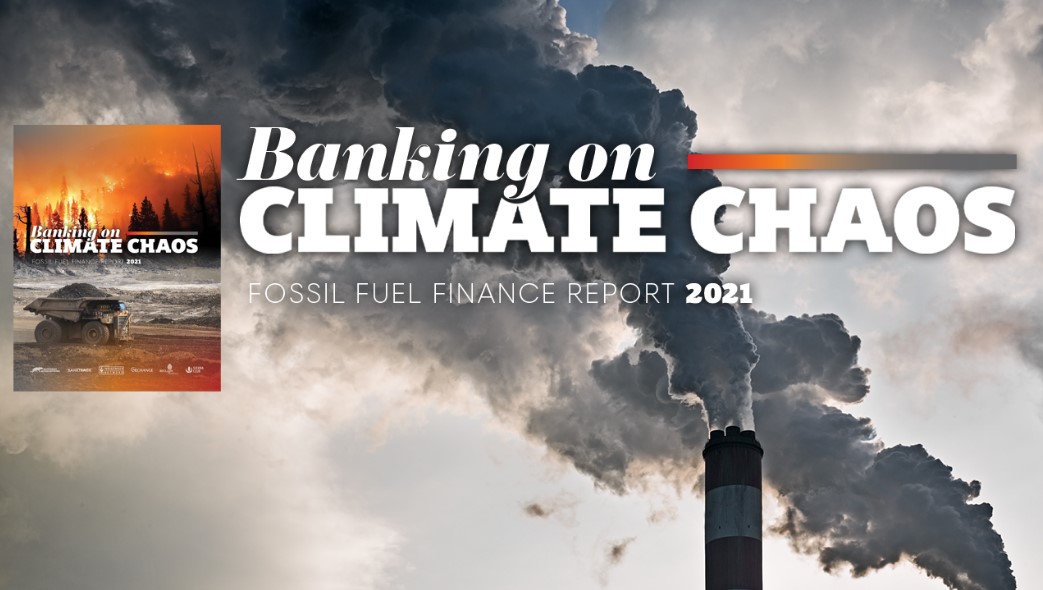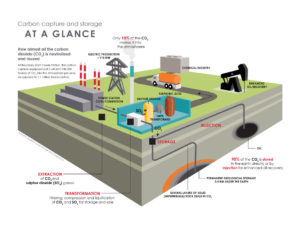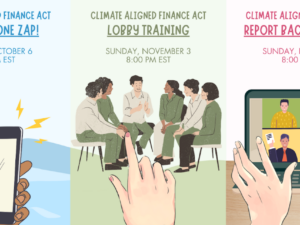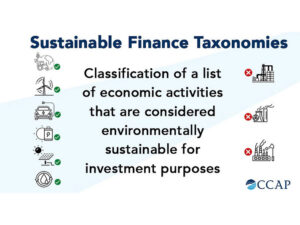We are in a climate emergency. According to the latest IPCC reports, coal, oil and gas are responsible for 86% of all carbon dioxide emissions in the past decade. To have a resilient and equitable world, governments must enact policies that redirect financial flows away from fossil fuels. In addition to pricing carbon pollution, we also need to look at banking regulations. On April 21, 2021, the Glasgow Financial Alliance for Net Zero (GFANZ) chaired by Mark Carney, UN Special Envoy on Climate Action and Finance, brought together over 160 firms (together responsible for assets in excess of $70 trillion) from the leading net zero initiatives across the financial system to accelerate the transition to net zero emissions by 2050 at the latest. At that time only one Canadian bank joined the alliance: Vancity at that time. Just prior to COP 26 BMO, CIBC, National Bank of Canada, RBC, Scotiabank, and TD joined the alliance. Of note, in May 2021, Canada’s Sustainable Finance Action Council was launched. The council is mandated to work in close collaboration with the Net Zero Advisory Board to ensure climate considerations are reflected in public and private financial decision making.Canadian banks must disclose climate risks to create a liveable world
Canada’s Big Five banks, according to the 2021 report Banking on Chaos, RBC, TD, Scotiabank, CIBC and BMO, have poured more than $700 billion into fossil fuel companies since the Paris Agreement was agreed on.
Canada should look to New Zealand about Canada’s bank problem. In April 2021, New Zealand introduced a law that will force financial firms to assess not only their own investments, but also to evaluate the companies they are lending money to, in terms of their environmental impact. It was passed into law in October 2021.
At COP 26, the Glasgow Financial Alliance for Net Zero (GFANZ) committed over $130 trillion of private capital to transform the economy for net zero. These commitments, from over 450 firms across 45 countries, can deliver the estimated $100 trillion of finance needed for net zero over the next three decades. Domestic policies such as predictably rising carbon prices and climate risk disclosures of finance will facilitate the transformation.
On March 24, 2022, Independent Canadian Senator Rosa Galvez tabled a new private member’s bill that goes beyond calling for disclosure and demands systemic change from the financial sector called the Climate-Aligned Finance Act .
On March 31, 2022, the Honourable Catherine McKenna who ushered in Canada’s carbon pricing policy was appointed chair of the UN High-Level Expert Group on Net-Zero Commitments of Non-State Entities.
Laser Talk: Canadian banks must disclose climate risks to create a liveable world
Home » CCL Canada News » Laser Talk: Canadian banks must disclose climate risks to create a liveable world
Laser Talk: Canadian banks must disclose climate risks to create a liveable world
Posted on February 27, 2022 in Laser Talk












